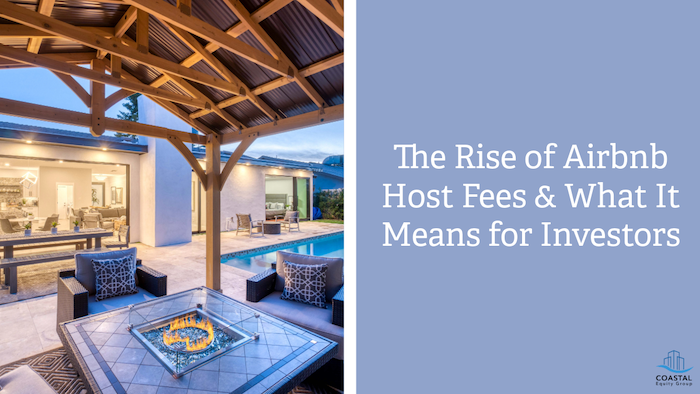
The Rise of Airbnb Host Fees & What It Means for Investors
Airbnb has shifted how it charges hosts, moving from a split-fee model to a single host-only fee, which can climb to 15.5% in many markets. For investors who lean on short-term rental income, this change is more than math. It’s a test of your strategy, positioning, and ability to adapt.
Why This Fee Shift Matters (More Than You Think)
Under the old system, Airbnb charged hosts about 3% of the booking subtotal (nightly + cleaning + extras), and guests paid a separate service fee (often 14–16%). The new 15.5% host-only fee consolidates that entire commission onto hosts.
On paper, jumping from 3% to 15.5% feels like your revenue is taking a beating. But the real impact depends on how you reposition your pricing, clean fee policies, and your guest experience. Many hosts are finding that if you simply raise all your pricing (nightly rate, cleaning, guest extras) in proportion, you can preserve your net payout. For instance, if your nightly was $100, you might need to move it to about $114.80 to maintain your net after the 15.5% cut.
Still, execution isn’t trivial. If you hike too aggressively, your listing can become less competitive or even drop in Airbnb’s algorithmic visibility. Some hosts are experimenting with a soft rollout, adjusting cleaning and extra guest fees first, monitoring booking trends, and then tuning nightly rates.
A silver lining? Airbnb now shows the total price (all fees included) to guests upfront, removing sticker shock at checkout. That transparency can help your listing conversion, especially if your total price remains competitive against peer offerings.
What Investors Should Do Right Now
If you’re a real estate investor relying on short-term rentals, this change affects you at multiple layers. Here’s what you should consider:
- Revisit your yield projections.
Run your income models with the new fee structure. If your net margins shrink materially, reassess your underwriting assumptions or target markets. - Be strategic with rate adjustments.
Don’t be quick to add a blanket increase. Use data (seasonality, local comps, occupancy trends) to guide where and how much to lift nightly rates, cleaning fees, or guest surcharges. - Lean into direct bookings.
One of the best defenses against platform fee creep is moving guests off Airbnb entirely. Build a lightweight website, offer repeat-stay discounts, or provide incentives for returning guests to book direct. Every dollar you keep outside platform commissions is a win. - Diversify your distribution channels.
Airbnb isn’t the only game in town. Use Vrbo, Booking.com, or even local niche platforms that may still favor hosts with lower commissions or promotional visibility. - Watch your performance metrics.
A sudden drop in search ranking or declines in bookings after your price changes might signal the algorithm penalizing your listing. Stay nimble and test incremental changes. - Position cash reserves.
Short-term rental investing always involves uncertainty. Platform rule changes are just part of it. Make sure you have reserves for slower months so you’re not forced into distress decisions.
We’ve seen how markets evolve and how investors who remain alert and adaptable win in the long run. Changes like Airbnb’s fee overhaul aren’t just challenges; they’re also opportunities to sharpen your strategy, strengthen your competitive position, and lean into the parts of short-term rentals that truly drive value (guest experience, location, property quality).
If you’d like a sounding board to run your projections, stress test new pricing scenarios, or explore alternative financing strategies while navigating changing platforms, we’re happy to talk through it.
Coastal Equity Group
15 State Street
Charleston, SC 29401
in**@****************up.com
843-737-0182
How can we help you?
Please submit your information here along with a brief message.
